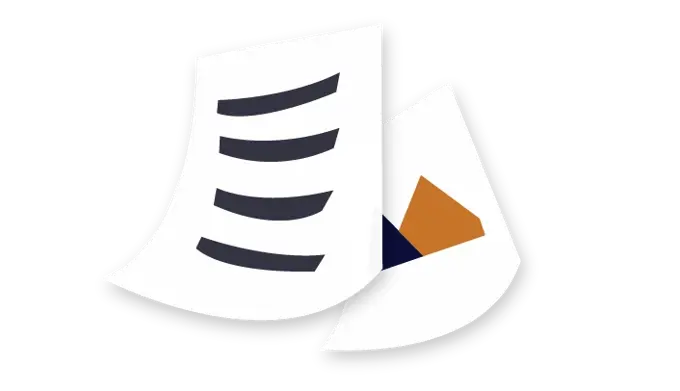How much does it cost to build and run a website?
One of the big questions that always keep popping up is - how much does it cost to build and run a website?
Like everything else when you run a business, it is nice to know when you will have a return on your website investment.
To keep track of your business expenses and investments, it is important to have an idea of your website’s ROI. In this article, we will give you a simplified formula to calculate your return on investment on your website project. You could start to calculate the ROI of your existing website if you already have one today. Then you could jump directly to the chapter How to calculate the ROI of a website.
Otherwise let’s start with why you should even considering redesigning your website, and what may affect the price. We will cover the basics of what you need to think of before you even start. And don’t worry - this article won’t go into technical details with coding the website. We are here to give you a grasp of the work that is needed. Not how it’s done.
Let's get into it!
How to calculate the costs of a website?
The pricing for a website varies wildly. The costs can go from free, to DIY projects with minor fees to huge e-commerce and enterprise solutions.
The price is often based on how many hours will go into the project. Most web projects will need to take several steps and processes into consideration. Going down memory lane, websites used to be only business cards or an online brochure. That is not the case anymore. Websites have turned into dynamic marketing tools. Therefore they need to deliver results for your business.
For some companies and organizations, a good return on investment can be increased sales, increased visitors, calls, or increased inquiries from forms on your website.
But let us not get head over heels with a new website project, that’s going to give an instant ROI of +700%. It’s not an instant cashback guarantee. A good web project is a well-thought website, platform or product, that is going to aid your business to achieve its goals.

White Paper: How To Choose The Right CMS
Wondering which CMS to choose? Here's a white paper that helps you choose the right one for your needs. Includes a scorecard template you can use right away.
Why even start a new and costly website project?
Let’s just be honest about it. Creating new web projects can be time-consuming. And you have to consider if you just need to tweak what you have. Or start from scratch. Some of the reasons for considering a new website project are:
You want to be serious about SEO and digital marketing.
If your website is not built to support SEO, it might be a good idea to consider if you need to start over. A good place to start is to have a full-blown SEO audit in place for this. Your code might need to be updated to comply with the new Core Web Vitals, or you need an SEO Friendly CMS.


Your website is missing out on important functionality
Since the web is an ever-evolving technology, you will need to adopt and follow along with your website with users expecting even more from the website experience.
You might need to add extra functionality like CRM options, e-commerce, or appointment booking functionalities to your site. Maybe your existing solution is just not scalable enough for this, then a website redesign might be the way to go.
You want to rebrand your website
Companies change - Maybe you have had a fresh new makeover of your logo and company colors. Maybe your site has expanded over the years with different elements being added, and consistency is not quite there. Then you should consider doing a redesign.
If you go from one page with a specific look, and then all of a sudden the page has another look - there’s a chance your visitors will fear that something is wrong, and you may end up losing these visitors.


You want to have more conversions
You might have a good flow of traffic to your website. But are you sure that you are getting value out of that traffic?
Your communication on the website needs to be convincing and make it clear who you are, what you do, and talk directly to your target audience. You might need to completely redesign your site and add a new CMS.
Should I redesign my website?
Well, this depends on your needs and the vision of your website. A redesign of your website will take time, hard work, and money. But it will play a crucial role in there your online success.
When your website is aligned with your overall business strategy, a redesign can help your business grow
How much does it cost to build a website?
One of the big questions that always keep popping up is - How much does a website cost?
There are as many prices for a website as there are websites in the world. That is the short answer. There are of course nuances to this answer, and it very much depends on your needs and requirements.
But almost no matter what kind of website you need to build, there are some steps and requirements you would need to consider. Now again, there’s no definitive answer on what is required and is not, therefore please take this as a rule of thumb. There are DIY solutions, where you might use a premade template for your website or you can hire web developers and agencies to create your website.
Building or redesigning a website is a time-consuming process. It will take hard work, and some money to get there. But you need to have a vision of your time frame and the overall budget. But you also need to know about what you want and need. The more accurately you and your design and development team can scope your project, the better the estimate, and thus also the possibility to calculate the ROI of your website. Let's have a look of some of the factors, that may affect the cost of your website, and thereby also the ROI of your website project.
How much does it cost to run a website?
No matter if you choose to go with the template solution or hiring a developer or an agency to create your website, there are some costs you need to consider when you run a website. These can vary depending on your needs.
Here are just some of the basics you need to consider, and account for in your overall website development costs.
- Domain
- Website hosting
- TLS/SSL Certificate
- Web Design and web development
- Your CMS
- Functionality
- Content
- Integrations
- SEO and marketing
As you can see, the list does not seem that long. But as soon as you start digging deeper, some of these topics will unfold themself.
Now there’s a couple of ways to get around the build itself. You can either use a website builder or hire a freelancer or an agency to develop your new website.
It is up to you and your project which solution will fit you. If you have your team of developers well then it’s quite easy. Otherwise, you could look for freelancers or developers to help with your website. But let’s dive into some of the topics.

Domain
Your domain is probably one of the most crucial parts of your website. It is a part of your unique identity online. To be able to have your own and unique website and email, you need to invest in this. It’s part of securing your brand presence and a crucial part of your SEO strategy as well.
You will need this for people to be able to find your website. The cost of this depends if you want a .com, .org, .biz, or a local domain like .co.uk or .nl. Depending on local regulations the prices will vary, but the cost is quite low.
Hosting of your website
To have your website, you will need some web hosting. There are several ways to have your website hosted, and it all comes down to your needs. How much traffic are you expecting, how about speed, what kind of service do you offer - streaming services require special hosting.
We will not cover the advantages and disadvantages of hosting in-depth in this article, but check our article on Cloud hosting for further details on this topic
There are several solutions you can choose between:
- Shared hosting
This is a great option for websites that don’t have any special requirements or need a lot of server resources. Generally, you will very quickly be up and running with this kind of hosting. You will share the server with other websites, thus also sharing the costs. - Dedicated hosting
With this option you will either have your own server or rent a server, that is shared with no one else. Here you will have control over software such as the operating system, hardware, etc. This is a great choice if you need more control over your data and the server. This solution will often require that you take care of the server, like software updates, security, etc
- Managed hosting
Generally speaking, this is very much similar to dedicated hosting, but you hire another company to take care of the technical aspects and keep your server up to date. Since you pay some on to take care of your server, it will be more expensive than the dedicated private hosting, but since you pay someone to do it - you won’t need to worry about it
- Cloud hosting.
There are various options when it comes to cloud hosting we have written a whole article about Cloud hosting.
If you want reliability and scalability for your website, this might be the way to go. Since your website is hosted in the cloud, you will not be affected by local power shortages, since your hosting will be decentralized. Instead of using a single server, cloud hosting uses a network of connected cloud servers. If you want high uptime for your website, you should consider cloud hosting. If you choose to go with Cloud, Umbraco Cloud could very well be the solution for you.
As we have just been through - there are several things to consider in just this topic alone.
Umbraco offers a choice of either hosting your website on a server of your choice (as long as it’s compatible with the software requirements for Umbraco) or you can choose to let us handle everything concerning hosting and setting up the Umbraco installation, rolling out fixes and updates to our CMS with Umbraco Cloud.
TLS/SSL Certificate
A TLS-certificate helps protect your information and your users and the information of your customers. A TLS-certificate may also help boost your rankings in search engines.
THere are a few versions of TLS certificates to choose from, and they come with different pricing options, which all depend on your needs. Thus also varying in price. Some are free, others will have a price tag.
With Umbraco Cloud, we offer free TLS certificates via Cloudflare at no extra cost for your Umbraco Cloud projects.
Webdesign and webdevelopment
Basically - When you hire someone to build your website, the pricing will often be calculated based on the number of hours your project needs - The formula for this is straight forward:
Amount of hours x Hourly rate = The cost of hiring someone to develop your website
We do of course now, that the above formula is very simplified, and there are many other variables to account for, and every developer or agency has their way of pricing their work.
But some of the things that will affect the hours, and thereby the price are:
- How complex is your vision for the new website?
- Do you want the agency to handle hosting, domains, integrations, and implementations for you?
- Which systems are going to be integrated with your website?
- What features do you need?
Your choice of CMS
How do you choose the right CMS? Which one will fit your project? There’s no easy answer to this.
However there’s a couple of things you should keep in mind - If you have an existing website - don’t list all the features that your old CMS has, and then add a couple of extras on top of that. Think of the use cases rather than “I want a WYSIWYG-editor” you should say “ We want non-technical users to publish high-quality content quickly.”
In fact, we wrote a whole article covering the subject; how to choose the right CMS, if you want to go deeper here.
When looking at content management systems (CMS) you have a lot of choices. You could divide the software into open source and proprietary CMS’s.
A proprietary CMS is the opposite of open source CMS in a way that it is completely built and maintained by a single company. The source code of such CMS cannot be changed or distributed without complying with licensing agreements. The license owner can restrict the use, access, and modification of their source code.
Whatever you choose will reflect on the price tag. Proprietary software will come with a license fee that you need to add to your website budget.
Other content management systems like Umbraco are open-source and free and will not come with a purchase or license fee.
White Paper: How To Choose The Right CMS
Wondering which CMS to choose? Here's a white paper that helps you choose the right one for your needs. Includes a scorecard template you can use right away.

Functionality and integrations
We touched base on this a bit. But you can go from a simple website with a few pages and templates to choose from, or you could go all the way with integrations, CRM, customer experience platforms, e-commerce solutions.
There’s so many things to add and integrate your system with. Either some one already made an app, plugin or integration for your choice of CMS, or your developer can build it specifically for your webproject.
What about the content, marketing and SEO?
When considering a new website, or a website redesign is a very good idea to keep new content like text, images, and videos in mind as well. You can either hire someone to do the copy and images for you or do it yourself. No matter what, you have to take this into account, as it can be a time-consuming process.
If your website is going to play a crucial part in your business model, you would also need to consider costs like:
- Content
- SEO
Now, these two are not necessarily a part of your website budget. But they are crucial to your online success - along with all of your other online costs like search engine advertising and ads on social media.
Unless your business operates in a very unique niche, chances are you need to keep up with your competitors and consider content and SEO as a part of your website costs. Depending on how your organization is structured you can argue to put content and SEO under the marketing budget together with digital advertising. But no matter what - it is a cost, that revolves around your website - both before and after your project is finished
If it's SEO you are worried about, have a look at our article on SEO and Umbraco - even though it's specifically for Umbraco - you will get some great hints on what to look for in a new content management system

Establish goals and benchmarks
To be successful with your website, no matter if it’s new or old it is a very good idea to have goals and benchmarks established. Preferably before you even start with your website project.
For some businesses, a goal will be the number of times a form is filled out on the website. It could be an inquiry or it could be a specific booking for a call or a meeting. If you are a restaurant a goal can be table reservation.
For other websites, it will be a sale in their webshop. This varies a lot on your specific business model. And is a topic that you could and probably should dive deeper into.
Below we have listed a few of the things you need to dive into, in order to have an understanding of goals and benchmarking
Ensure that you have correct web analysis and tracking in place.
Now whenever you have your KPI’s and benchmarks in place, you need to ensure you have the correct tracking in place, to be able to track bookings through your website analysis tools and ensure that you spend your marketing dollars correctly.
What is the value of a lead or a sale?
You will probably have an idea of the average order, and how many people that visit your website that will convert. There will be an acquisition cost, and a customer lifetime value as well. Either your sales will be one-offs, or they will be recurring payments, with a monthly fee. To be able to calculate your website ROI you need to know about this.
Here's how to calculate your website ROI
There's a lot of factors to think about when you want to calculate your website ROI. The results of your new website project may vary. And be careful - Because you might even see that your ROI is negative. Then your project will be a loss for your company.
But that is of course not the case with your awesome new website or e-commerce solution! Yes - you will of course have a positive ROI.
Here's the formula we will go through in the next chapter on how to calculate the ROI (Leads x Closing Rate)(Price – Delivery Costs) = Profit
Example of website ROI calculation
But follow along now for our effort in calculating the ROI of our fictive website for our fictive Unicorn Hotel & Spa. Our fictive hotel provides a service that people will look for online.
On the southeastern coast of the pristine Island of Unicorns, the five-diamond resort welcomes all visitors to a vacation that will make their dreams a reality.
But our hotel needs more bookings. We could certainly do with a new website, as the old one is outdated, and there’s no possibility to book directly online. But as we have discovered. The price can vary a lot. From DIY projects with low costs like 1500 USD to full-blown solutions that integrate with our booking systems with price tags of around 50.000 dollars. Just for clarity - These are not actual prices of websites.

How much will this new website be worth to the manager of the Unicorn Hotel & Spa? How many bookings will he get? And what will be the return on investment?
Going further with our calculation, we will assume that our new website project will only have a contact form and a phone number, and no direct booking system integrated. (To keep our example simple)
Let us look at the variables in our ROI calculation:
- Website Visitors
- Conversions
- Leads
- Closing rate
- Profit
Now let's get on with the math lesson!

Website visitors
Our hotel will not get any bookings without some valid traffic to the site. Our hotel might be very luxurious, but it is unknown to some of the other brands in the business. Hopefully, we can rely a bit on the search engines to help future visitors to find the hotel.
Now we could take a look at the search volume of our top keywords. This could be monthly searches for ”Island of Unicorns hotel”. If our hotel website ranks high for this phrase in the search engines, some people will click on our website. The percentage of users that will click on the website is our click-through rate (CTR in short) Each click will be a website visitor.
But it’s not that easy with rankings. A higher ranking will equal exponentially more clicks. The top-ranking site will get way more traffic than the page that ranks 10th = more visits.
So to put that in a mathematical equation to be able to estimate search engine traffic it will be:
(Search VolumeRank) * CTR = Visits
Luckily (and because we will keep this simple) the hotel has a marketing manager that knows how to work with Search engine optimization and search engine advertising. And by checking competitors and the hotel website rank in various SEO and SEM tools, they have now calculated the expected visitors to be around 1000 pr month.
Conversions
Our marketing manager has established that we can get traffic from search engines to our hotel website. Awesome! But that is still not money in the bank. It’s just visitors which we can’t pay our bills with. We need to have some leads, which will be either direct booking, phone calls, or people reaching out through our contact form. The better quality of our website, the higher the conversion rate (think of factors like website speed, appeal, content quality, and the usability of the website).
So we have researched a bit and figured that with a good website design we should be able to maintain a conversion rate of 2%.


Leads
Now, to estimate our monthly leads we can simply take our two variables from above:
Visits x conversion rate = leads.
For the unicorn Hotel & Spa, this will be 1000x2% = 20 leads per month. The Unicorn Hotel & Spa website will have an estimated 20 leads per month.
Now the marketing manager can add on various search keywords and other marketing channels to raise these numbers. But we have kept it simple for our example calculation here.
Closing rate
So. Now we have qualified our leads. But we need to convert them into real guests at our resort. Luckily we have a good sales team at the hotel and they can close around 50% of all leads coming in from the website. In fact, on average they close a booking with an average price of $1000.
It’s not free to run a hotel. So we do have some costs. It costs the hotel an average of $500 in food, wages utilities, maintenance, and cleaning each time we have an average booking of $1000. So the value of a lead for The Unicorn Hotel & Spa is around $250.
(leads x closing rate) (Price - service costs) = profit.
Okay. Let us try this in action!
What is the ROI of the website?
(20*50%) ($1000-$500) = $5000
So on average our well-ranking example website will bring in up to $5000 in profit from website leads per month. With that established we can calculate that our Unicorn Hotel & Spa website with a cost of $30.000 will break even after 6 months.
After that, it will be profitable. During the lifetime of our website, it will bring in leads worth several thousands of dollars.

You don’t want to cut corners here!
Now. Our Unicorn Hotel & Spa manager knows that it won’t be all happy go lucky with the business. There’s ongoing work to be done, to keep the leads coming in at a satisfying rate. Even just to maintain our conversion rate. But even more, work to raise it. Over time they deploy a marketing strategy that involves things like:
- Ongoing work with SEO
- Paid digital marketing
- Great content for the blog
- The Unicorn newsletter with great offers
- Further optimization of the website
Now we have tried to cover this in a very simple model for calculating the website ROI. We have not taken traffic sources like search engine advertising, display, and social media into account.
No matter what. We hope this will give you an idea of how to start calculating your website ROI.
White Paper: How To Choose The Right CMS
Wondering which CMS to choose? Here's a white paper that helps you choose the right one for your needs. Includes a scorecard template you can use right away.